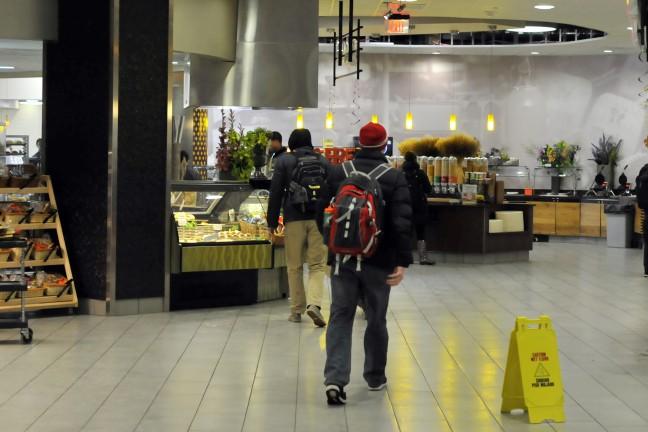The University of Wisconsin has seen a drastic increase in the number of students eating gluten-free, and campus dining halls are trying to keep up with the increasing demand for gluten-free options.
Part of the demand for gluten-free options is tied to celiac disease, which is an autoimmune digestive disease that interferes with the absorption of nutrients from food. The only way to treat the disease is a diet without gluten, which is a protein found in specific grains and all forms of wheat.
Barbara Kautz, faculty advisor for the Gluten-Free Badgers student organization, said she attributes the increase in cases of celiac and gluten sensitivity to advances in the medical community.
“Now they test people more commonly and consider the possibility of not only celiac disease, but a gluten intolerance if a gluten-free diet makes you feel better,” she said.
According to the National Foundation for Celiac Awareness, one in 133 Americans has celiac disease, and six in 133 Americans have non-celiac gluten sensitivity.
Kautz said the number of gluten-free UW students has dramatically increased.
The Gluten-Free Badgers have worked with the Wisconsin Union and university housing after raising concerns that the campus lacked gluten-free options and has been pleased with the changes that have been made thus far, she said.
The most important factor in making gluten-free options available on campus is self-advocacy, Kautz said. She said she is pushing to have gluten-tolerance included in the paperwork UW collects upon admittance.
Campus Dining dietitian Denise Bolduc said UW purchased a program called Net Nutrition three years ago to enable students with food allergies to more easily navigate the cafeteria.
The program allows people to screen for allergens and food intolerance, Bolduc said. It is an easy way to subtract menu items a person cannot have, she said.
Bolduc said UW’s dining halls have incorporated gluten-free items such as pizza, pasta, deserts and various baked goods.
Union South has also incorporated gluten-free options at its restaurants, Kautz said.
“It is important for students to know what resources they have and that they do have options on campus,” she said.
Kautz said students should call ahead if they plan to attend UW-hosted events that are serving food. If food services are aware of a gluten allergy in advance, they will be sure to provide a gluten-free option, she said.
She also said UW food services would order food tailored to a student’s allergy if it is requested.
While gluten-free options on campus and in the Madison area have become more common, there is still progress to be made before the incorporation of gluten-free options can be considered universal, Kautz said.
“We do have a campus that is very supportive and really wants to meet the needs of students,” Kautz said. “If you are a gluten-free student on campus, do not be afraid to make your needs known.”


















